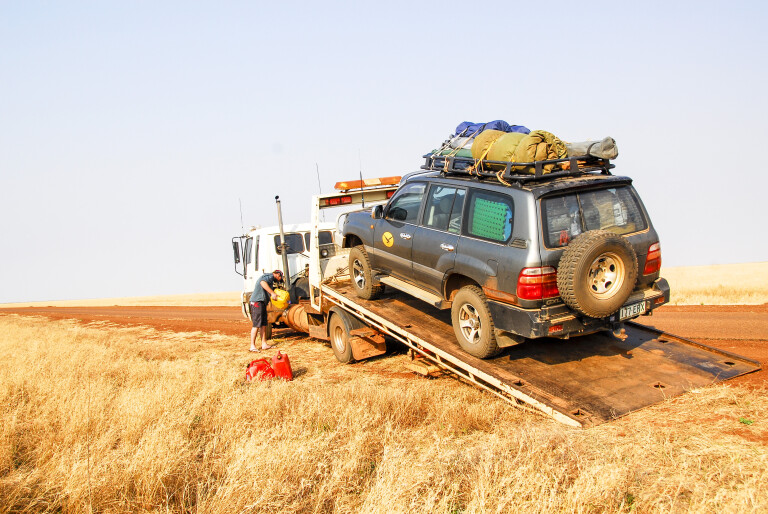
Not a day goes by when someone among us suffers the effects of disaster – death, financial loss, marriage failure, job loss, house fire, vehicle accidents, to name a few – which will knock the hell out of people, both emotionally and physically.
That’s only at home, so what happens when the reliable fourbie decides to toss in a cylinder somewhere in the middle of the Simpson Desert? Or you run off Cahills Crossing because you misjudged the power of the water and the crocs are closing in on you? The bushfires and floods on the East Coast are perfect examples of what can go wrong when a benevolent Mother Nature turns on man and beast.
Like many of you, I have been stressed to the limits, with my earliest memories being of an artillery barrage sending deadly missiles across the Dutch border in to German lines a few kilometres from our farm. I was just over two years old, but I remember sitting on my mum’s knee, with my younger sister perched on the other, both bawling our eyes out every time the English artillery fired, and the concussions shook our cottage.
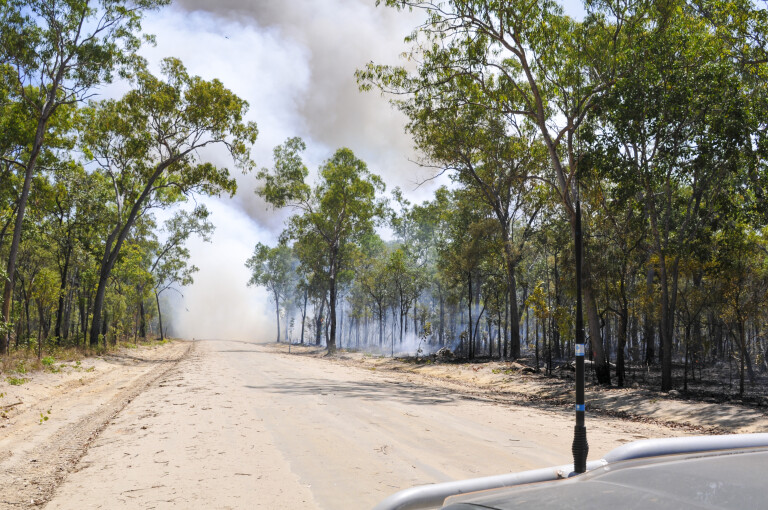
Some years back, a mate and I were fishing at Turkey Dreaming, 40km downstream from the infamous Cahills Crossing on the East Alligator River, which is the border of the Kakadu National Park and Arnhem Land. Fresh in our memory was the fatal attack by a crocodile a week before when old mate, Kerry McLoughlin, was killed while fishing for barramundi on the crossing.
It was hot and humid as the run-off season is, when rivers and floodplains drain when the Wet is over. A couple of beers for lunch and a wait for the tide to turn to carry the 3.7m tinnie back across a rockbar to the landing near the crossing. We had enjoyed a good session on barramundi, with a couple on ice and the bulk released.
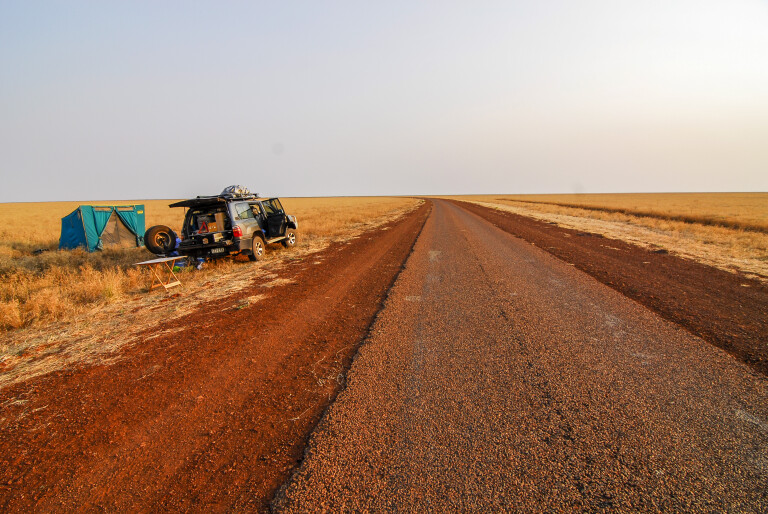
A 3.5m crocodile, possibly the mother of a creche of babies nearby on the bank, shadowed us for most of the morning. That is Top End fishing and part of the wilderness experience, so you get used to it. It was hot, damn hot, and old mate leaned back on the bow rail and dozed off, as I did the same by leaning against the outboard.
I woke – suddenly – the hair on the back of my neck on edge. Without hesitation I threw myself on to the deck as the boat shuddered under the impact of the big croc slamming up against it and the engine. I stood up, an oar in my hand, and saw its ugly head a metre behind the tinnie. She looked at me, dived and swam away under the murky water, only to reappear 30m away. Old mate reckoned she had hit my shoulders, but it was a near miss and aptly demonstrates that when you lose caution in the wild, you are in danger of being eaten.
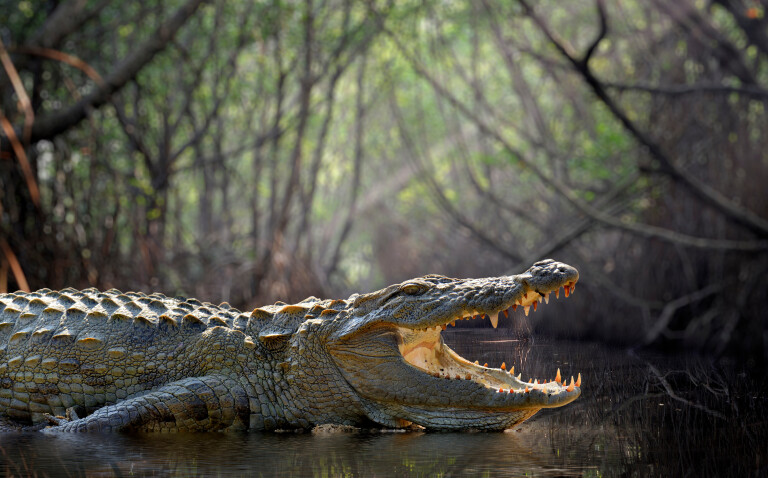
There have been other times, like when nature called near Borroloola, the result of a boozy night with some mates. Armed with a toilet roll, I squatted in a bushy gully and looked directly in to the eyes of a coiled three-metre king brown snake – hell they look mean close up. I tossed the roll at it, stepped out of my stubbie shorts and shot up the bank to the Land Rover, much to the surprise of my wife and our two children. Armed with my shotgun, I turned back in to the gully to finish my business and retrieve my stubbies. There was no sign of the snake.
Incidents like this happen all the time in the bush, like when my horse shied when a large goanna ran up its leg. I vacated the saddle and watched in dismay as my horse galloped for the homestead gate some 12km away, the goanna in the saddle. It was a very long walk home in riding boots, with no water.
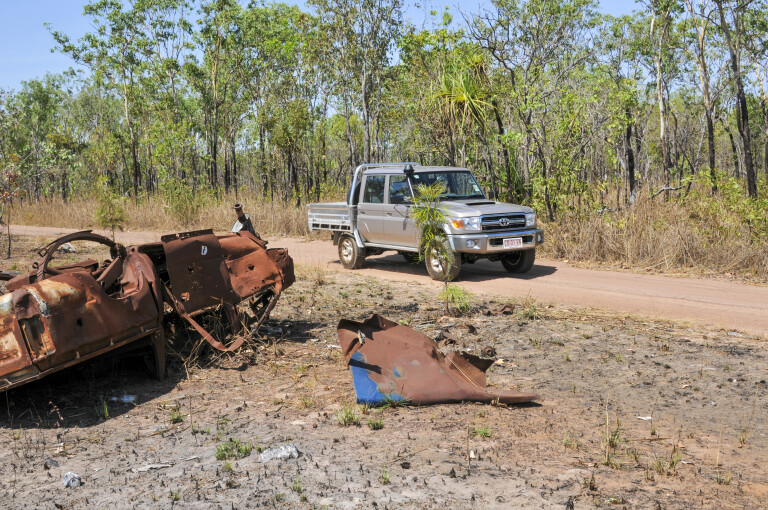
Throughout the years I have had breakdowns, been bushed in thick brigalow scrub, injured, pinned by my arm under a Land Rover when the jack slipped, washed downstream in a flooded creek at midnight in the rear of a Volkswagen bug, and a whole heap of other mishaps. Some could have been avoided, but young people are indestructible – others not so much.
In that time I have been hardened by misadventures, vehicle and horse accidents, breakdowns, bogs and more, all helping me build up mental instincts for survival. I know others that have faced the same dangers and survived; call it character building.
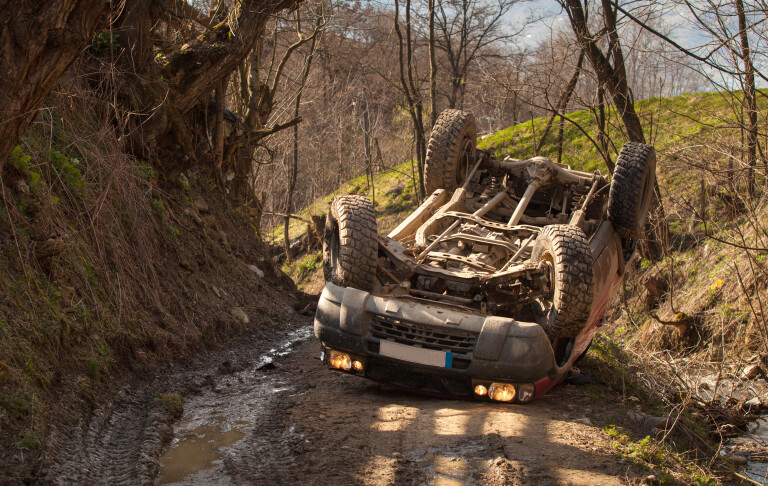
‘Doing a perish’
Every year there are horror tales of people ‘doing a perish’ in the outback due to vehicle breakdowns, and others who get lost and are never seen again. There are tales and legends out there of alien abduction, murder, robbery and more, and some have enough evidence to be true.
I know a bloke who lives alone in the bush in the ruins of an old pub. He ‘sees’ things that roam the skies and, while he has not been ‘probed’ yet, he fears it will happen soon. However, when people vanish in the wilderness it is because nature is a good cleaner.
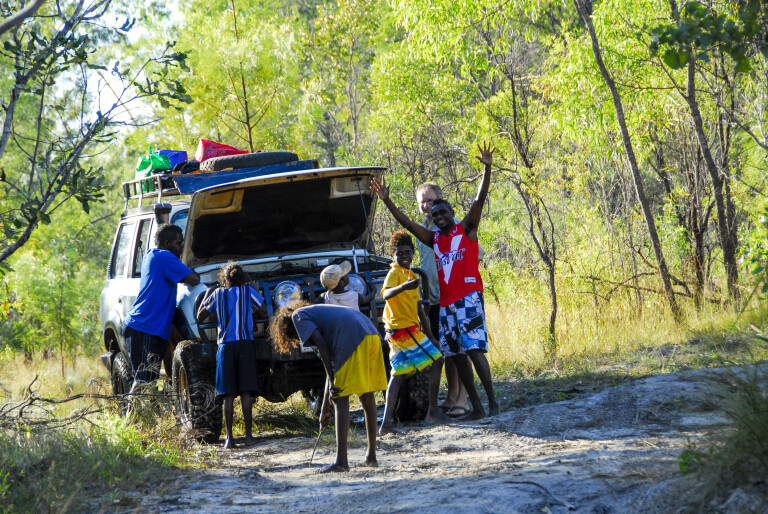
Decades ago, I was involved in a search for a bloke who walked in to the bush near Kajabbi, north of Mount Isa. He was full of good spirits – some say it was Bundy rum. We searched for long days before I was drawn by circling whistling kites, hawks and cawing crows. There were only a few bones and a skull, 200m away from the bones. The birds, dingoes and pigs had done a good job, and had it been a day later the telltale birds would not have been there as the bones would have been picked clean.
On a separate occasion, a couple of station hands on a large Georgina River property, south of Camooweal, headed out to do a bore check early in the day. The vehicle broke down 15km from the homestead. With no water or radio, they walked home in the 45°C heat and never made it, the unforgiving outback adding to its tally. The lesson here is to carry water and communication tools, and to stay with the vehicle as it’s much easier to find than a person.
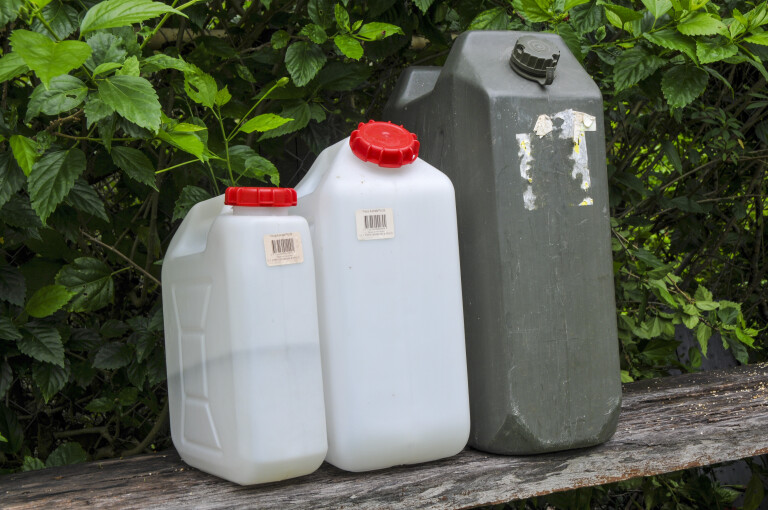
The same happened to German tourists west of Alice Springs some years back. Had they stayed with their vehicle, they would have survived the wilds. More recently, a family of Aborigines did that and were alive and well when found days after they were reported missing.
So, always let someone know your intentions and expected return when heading bush.

Brain fog
Brain fog is a term used to identify soldiers who become shell- and battle-shocked and disorientated due to battle stress. When not recognised by a soldier, it may result in his death. ‘Brain fog’ also affects civilians when caught in a mental or physical stress, or both. It affects our mentality to make a sensible decision and, unless you have been in a near-death situation, you may never experience it.
During the 1960s and ’70s, I was involved in several search parties around the Mount Isa region, one of the most rugged and extreme landscapes imaginable. One time we came across a bloke who had been lost for eight days. He had kept himself alive by drinking water and eating lizards. You would think he would have been happy to see his rescuers, but he ran away and it took some doing for me to run him down. He fought us off, but we pinned him down and held him until he calmed.

I have read similar reports that tell of lost people running away or hiding and, while a specialist medic may have an answer for such behaviour, it’s distressing to the rescuers who are there to help.
I worked in the emergency service department of the Ranger Uranium Mine in Kakadu for eight years – security, safety and occupational first aid. One night I was the first responder in the mine ambulance to a vehicle rollover. Two people were stumbling about in an alcoholic/drug daze, and another lay on the road near the vehicle. When I squatted down to check him out, I copped a severe blow on my cheek, hard enough to split it. It was more reaction than anger, but I stood up and kicked him hard in the ribs and that quietened him down enough until the police and the town ambulance turned up. The lesson here is to make sure the rescuer is safe.
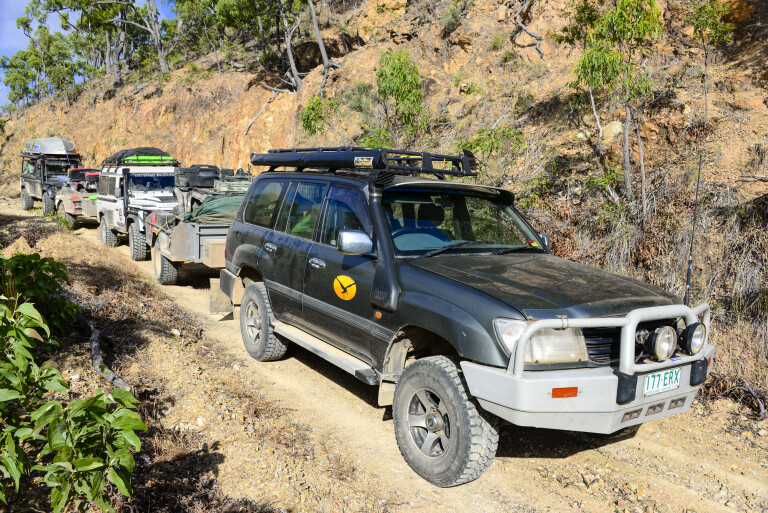
Modern explorers
The digital age we now live in has resulted in a society that relies far too heavily on technology. This is very evident on Facebook pages, where the ignorance of all things bush and wilderness is mind-boggling.
City wannabees are heading to the wilds in vehicles that are dependent on technology, when compared to the Land Rovers and short-wheelbase Toyotas used by film-makers like the Leyland Brothers and Norm Needham. While it’s a good thing to have reliable vehicles, we must not lose our common sense and ignore the danger about us, a danger that cares naught for technology.
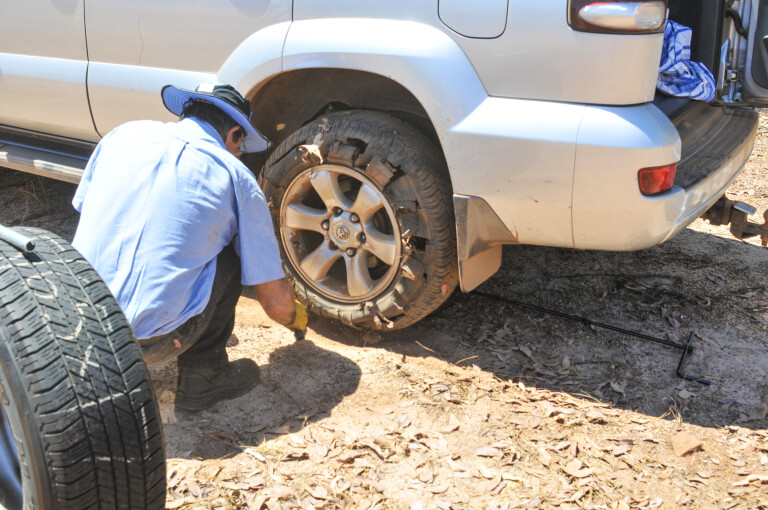
I have come across people who had no idea how to change a tyre; one bloke in a LandCruiser had most of the rear section pulled apart trying to find the spare. The look on his face was priceless when I pointed to where it was. Last year I came across a rollover on the Pormpuraaw Road: a Nissan Patrol towing a trailer loaded with a quad. Luckily they had a sat-phone and help was already on its way. They would not allow me to take a photo of the wreck, because “it will make us look stupid on Facebook”.
It could have been worse, but it aptly demonstrates that bad things can happen in the bush; and if you’re not mentally prepared for such a disaster, you’re safer holidaying on the Gold Coast.
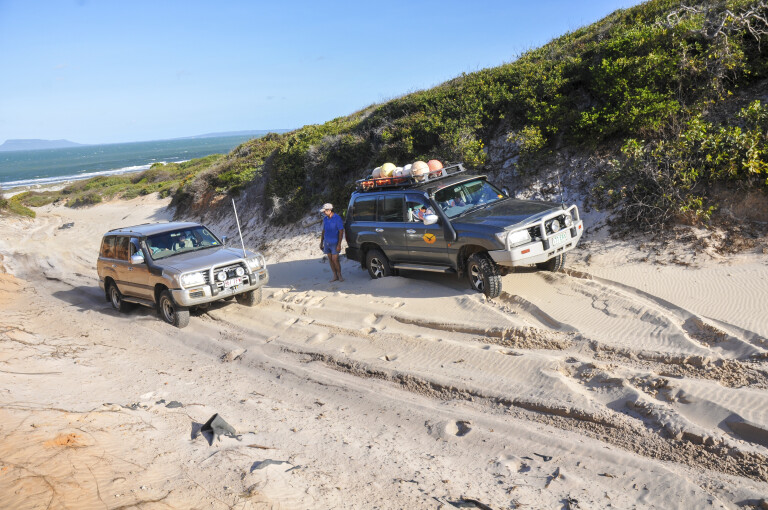
Running out of spare tyres is common on many outback roads, especially in Indigenous communities. The locals generally sit down to wait for another vehicle – pretty simple, really, when most community vehicles are Toyotas, so there is no problem with spares.
This mindset is one to follow when you are unlucky enough to experience the intensity of a mishap or major disaster. The problem is, once you panic, everyone else catches it and it spreads among the group like wildfire.
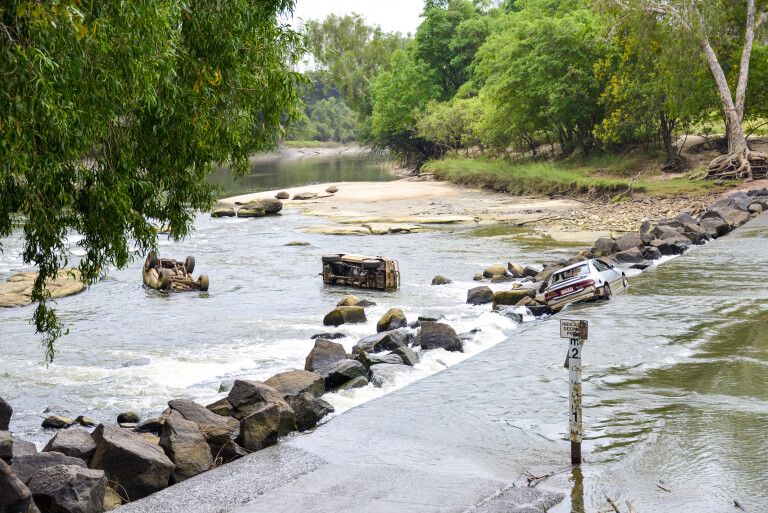
Avoid danger
If something does happen, sit down and think it out. Accept the harsh reality of the situation and think of a positive way out, because it will save your life and others with you.
Before you head off on remote bush tracks, ensure you have developed a level of awareness that crap happens. Disasters are not planned; they happen and in most cases are avoidable. It may be as simple as turning back when the track becomes impassable or a flooded stream halts progress, or, as I have done several times, turn back when a bushfire bars your path.
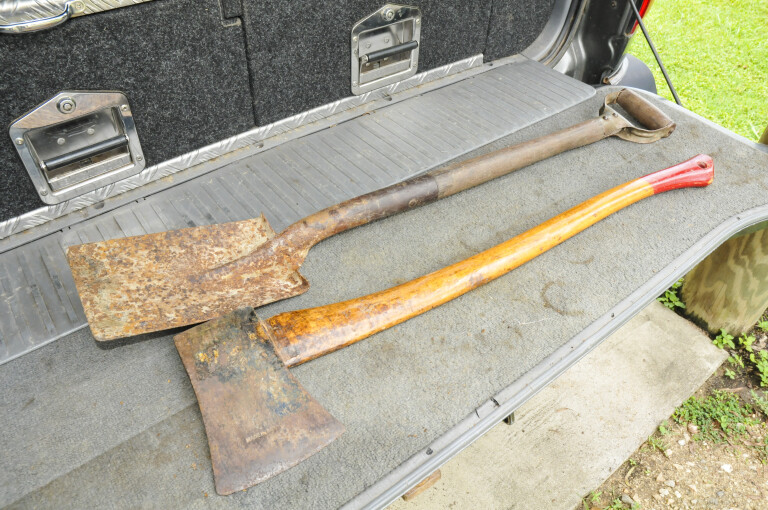
While most of us will never achieve the mental-health levels first responders and soldiers are trained for, we can fall back on something that is rarely used these days: common sense.
Always remember that even the best-equipped vehicles and plans are subject to Murphy’s Law. Unless you take a holistic approach and are mentally and physically prepared when bad things happen, you have no right to be out there – so sit down and think your way out of it when a disaster happens.
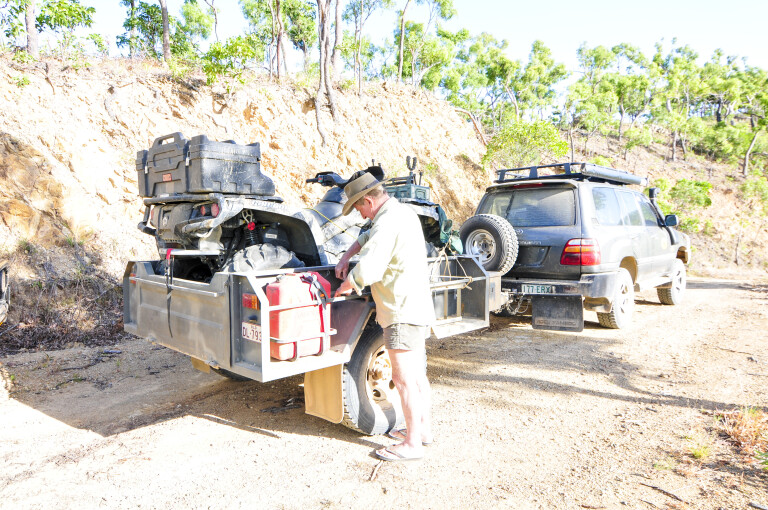
Survival tips
1. Always let someone know your destinations and expected time of return when heading bush.
2. Always remember to carry plenty of food and water.
3. Carry radiator hoses; fan belts; bearings; shock-absorber bushes; bolts, nuts and tools; two spare tyres; tyre pump; tyre-repair kit; spare jack; and spare fuel.
4. Also have a survival kit; compass; communication; GPS; PLB; signal mirror; and first-aid kit.
5. If lost or broken down, remain with the vehicle, put up shelter from the elements if you have a fly, and ensure water and food are stored in a cool place such as beneath the vehicle.
6. Don’t exert yourself in the heat of the day and remain in the shade.
7. Beware of snakes, spiders, scorpions and crocodiles near water in the tropics.
8. Remain calm and, above all, do not panic.

COMMENTS